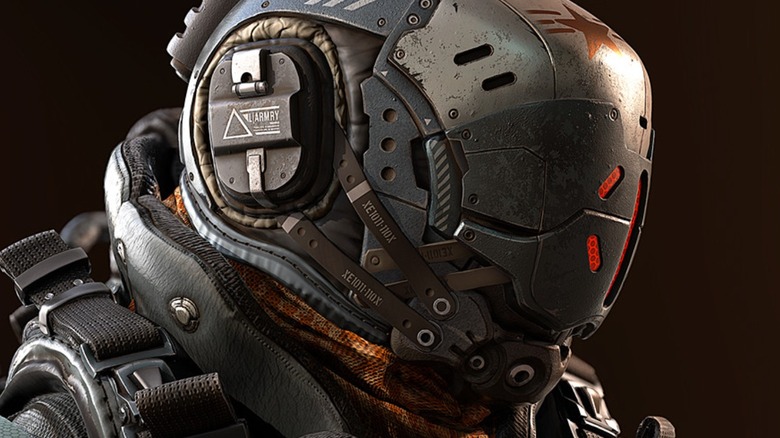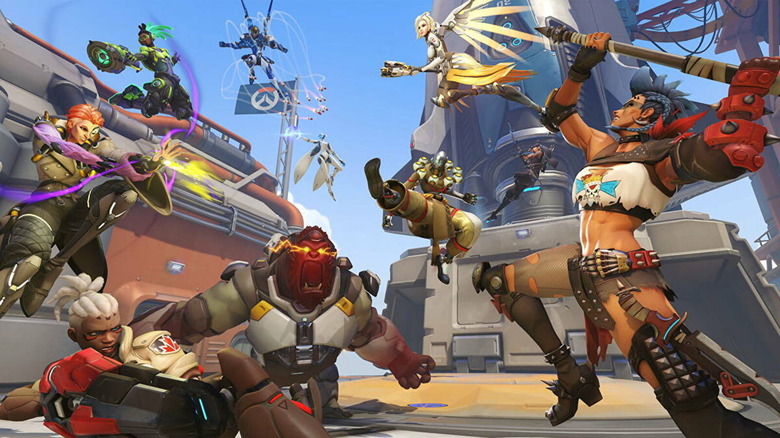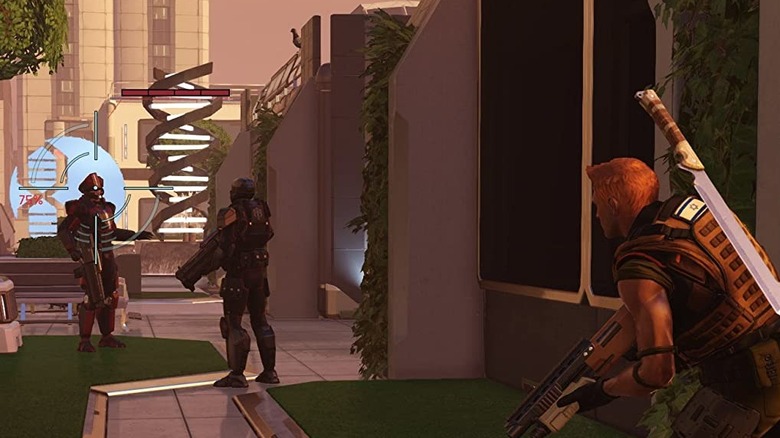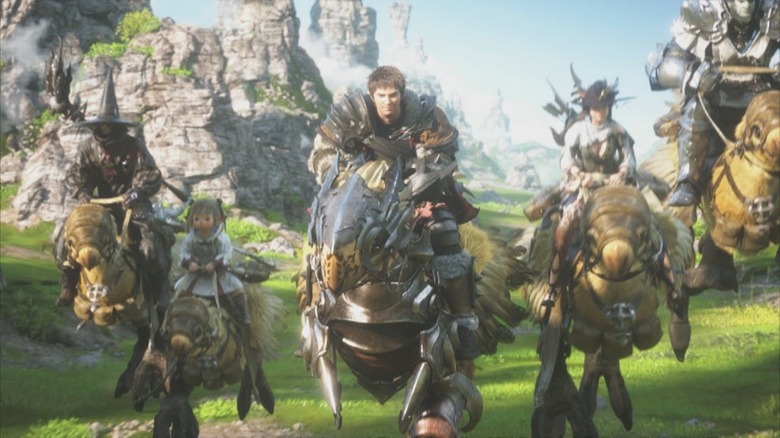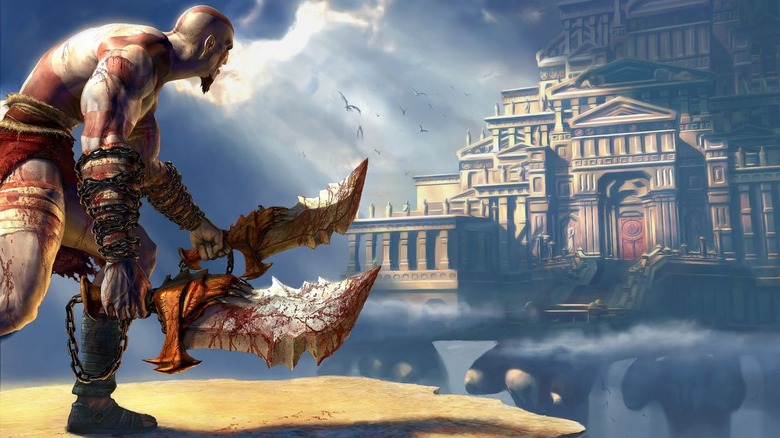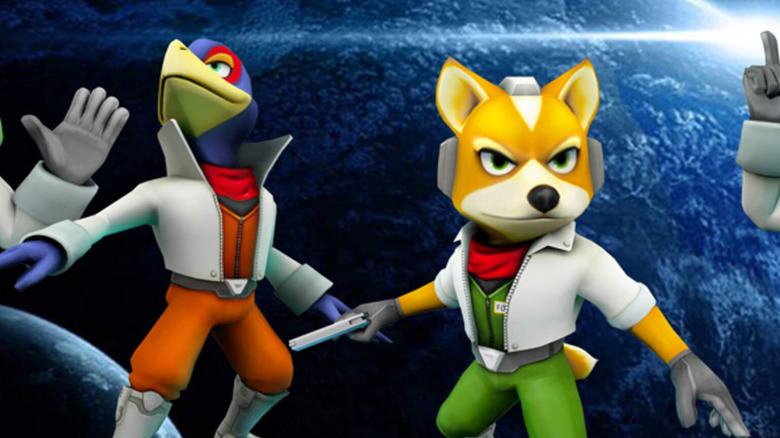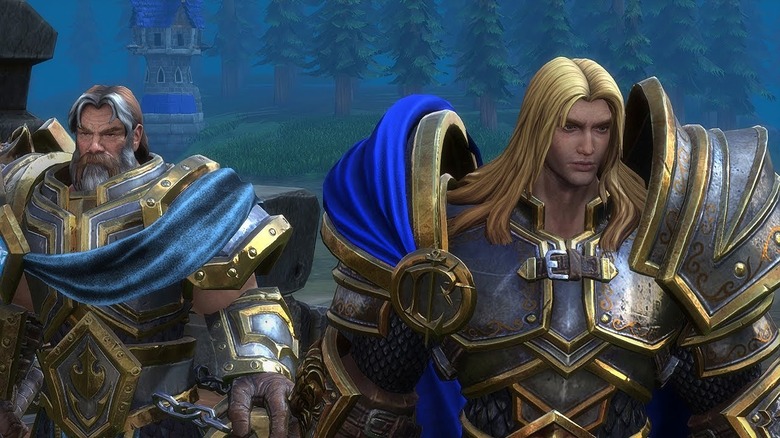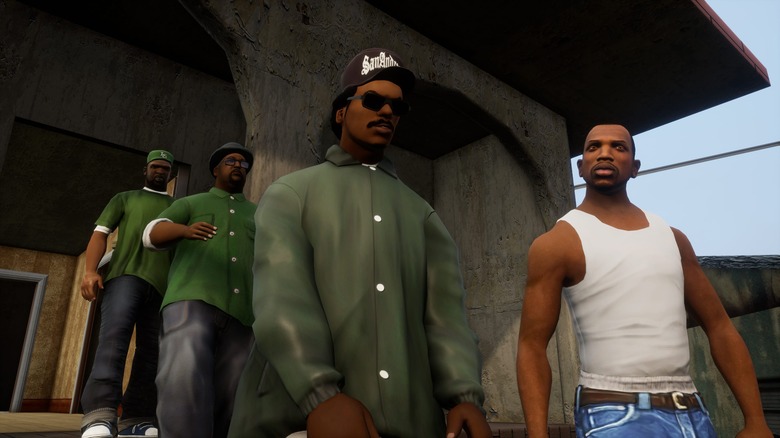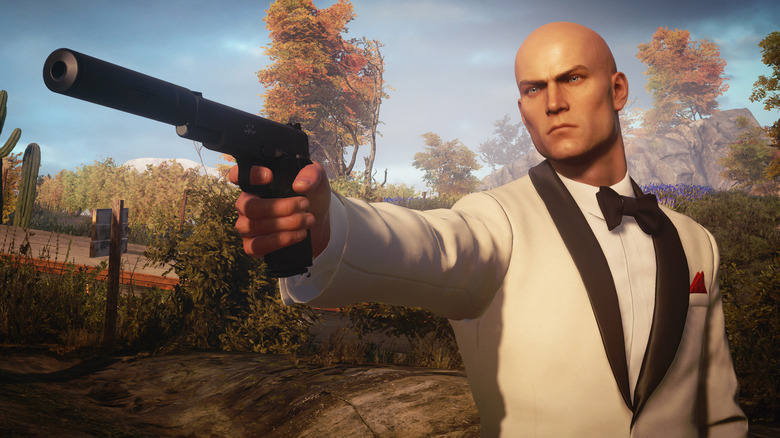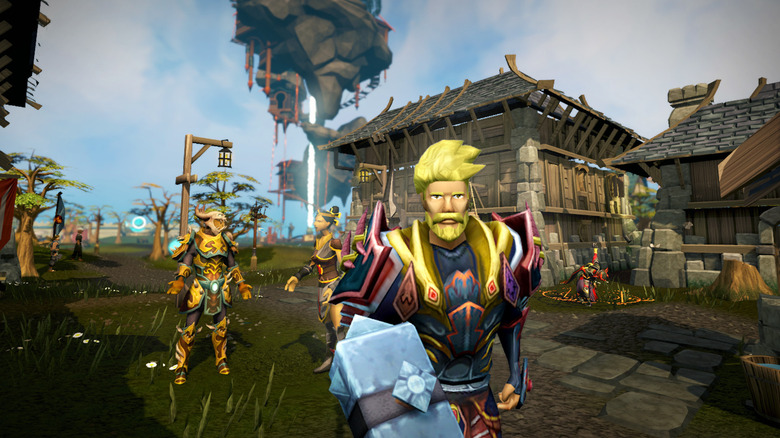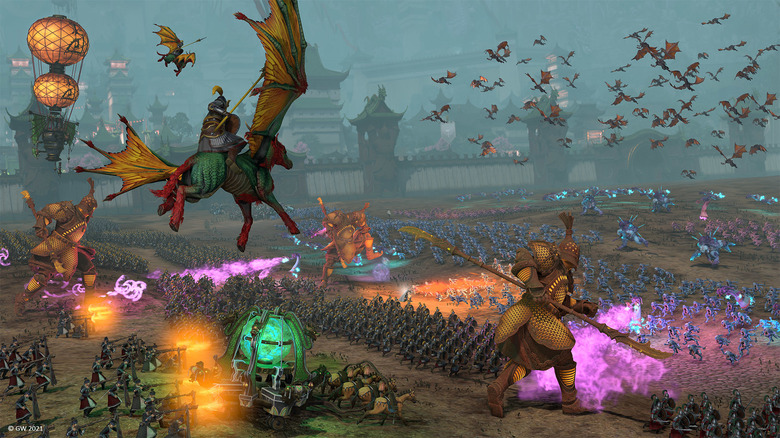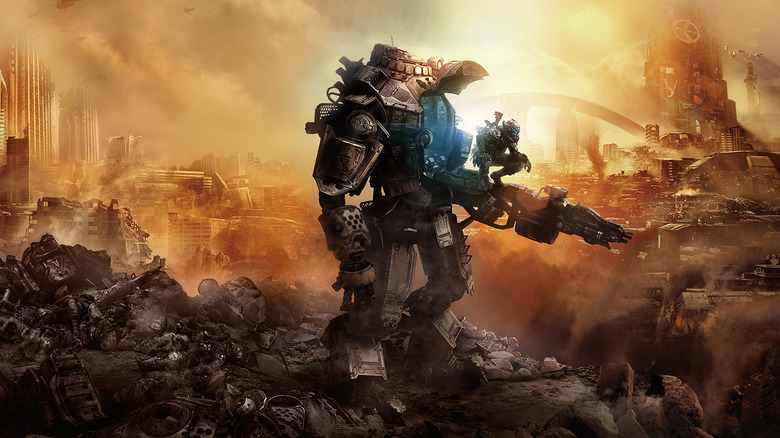Sequels That Completely Erased The Previous Games
The video game industry is filled with strong series that allow companies to expand on their previous entries and keep fans coming back for more. In the case of titles like "Half-Life," this can sometimes leave fanbases clamoring for a new entry that may never come. Many series, however, consistently offer fans new entries to enjoy that expand on iconic mechanics, worlds, and characters. This allows them to foster living worlds that continue to grow and cultivate an active community of fans.
Releasing a new game in a series isn't always a very smooth process, though. Sometimes the release of a new game has to drastically change the story of its predecessor to allow the story to support sequels and further exploration. Other times the release of a new game will outright replace the original, forcing players to move to the new release whether they wanted to or not. This is far from always being a bad thing, though. So, here are some sequels that have been released and almost completely replaced their predecessors.
Overwatch 2
"Overwatch" was a breath of fresh air to the multiplayer shooter genre when it was first released in 2016. The game's colorful presentation made it a treat for the eyes, while its hero-based encounters delivered players a shooter experience that blended teamwork with skill in an elegant way. After its release, "Overwatch" was supported with frequent updates that brought limited-time seasonal content, new game modes, myriad balance tweaks, and entirely new heroes for players to enjoy. The game's model of frequent free updates made it all the more confusing for fans when the developers announced that they would be releasing a full sequel.
Things only got more confusing once the nature of the sequel was revealed. One of the flagship features of "Overwatch 2" that was announced was a full story campaign, a first for the multiplayer-only franchise. It was also announced that the sequel would include a free update of the original's multiplayer mode for all players. This meant that players would no longer be able to play the original "Overwatch" multiplayer and would instead have to jump into the sequel if they wanted to play at all. Some of the sequel's additions, like new heroes and game modes, are definitely welcomed by all players, but it also includes some less universally appealing changes. The biggest of which is the transition from the game's signature teams of six players to only five, leaving each team with only one tank.
XCOM 2
The modern reboot of the "XCOM" series started with the release of "XCOM: Enemy Unknown" in 2012. The reboot modernized the classic turn-based combat series that was renowned for its high-stakes permadeath gameplay and critical resource management. This formula was modernized to be made more accessible to new players while still holding true to the series' tenets for longtime fans. Another iconic aspect of "XCOM" is its setting of the player acting as the commander of an elite group of soldiers responsible for repelling an invading alien force. This was no different in "XCOM: Enemy Unkown," but when the sequel came out it was set in a world where the aliens had won, leaving the player in control of a small group of rebels.
While playing "XCOM 2" players discovered that the first game in the reboot was just a simulation in the sequel's timeline. Instead of leading the humans to victory, the player's character, known as the commander, was captured by the aliens and used to run simulations to help them prepare to fight humanity. This revelation received a mixed reception from the player base and sparked a lot of debate amongst fans. Either way, the twist in the story is definitely an interesting one and it allowed the sequel to put a new spin on the "XCOM" formula.
Final Fantasy 14: A Realm Reborn
"Final Fantasy 14" is one of the biggest MMOs on the market. It has repeatedly received some of the best-received expansions that the genre has ever seen and enjoys a steadily growing player count as a result (via PCGamesN). New players who download the game now, however, aren't actually playing the original "Final Fantasy 14." Instead, they are playing the game's reboot that replaced the original, known as "Final Fantasy 14 A Realm Reborn." The story of the MMO's reboot is a fascinating and impressive one (via Inverse).
While the game may be fun now, it started out completely terrible. The classes were poorly balanced, it was filled with bugs, the story was unenjoyable, and many of its mechanics were clunky and unenjoyable for the majority of players. The developers addressed these issues following the game's release, but decided that many of the issues were too ingrained in the game's core to be fixed with updates. So, the decision was made to shut down the game and relaunch it with a range of core fixes and updates. The end of the original game was carried out with an in-game event of the players failing to prevent an apocalypse with the core narrative incorporating that into its story.
God of War
The "God of War" series has become one of the flagship first-party titles for PlayStation. Fans have become deeply invested in Kratos' story as well as the series' slick action combat. However, the first "God of War" did not leave much room for a sequel, much less an entire franchise. The first game's narrative was neatly tied up after Kratos achieved revenge on the Greek god Ares and took over his mantle as the God of War. Since the developers didn't originally intend on sequels and prequels to flesh out Kratos' story further, the first game included secret cutscenes that expanded the story for dedicated players.
These cutscenes filled in gaps in the story both in Kratos' past and his future as the God of War. Once the game became incredibly popular, however, the series expanded to support more games and comics that added to the story. These new story elements were drastically different from information originally introduced in the secret cutscenes, rendering them non-canonical as players journeyed through alternate explanations of the "God of War" timeline.
Star Fox 64
"Star Fox 64" released in 1997 as a sequel to 1993's "Star Fox" for the Super Nintendo Entertainment System. With the new power of the Nintendo 64, however, the game isn't as much of a sequel as one would expect. Rather than continuing the story of Fox's futuristic exploits, the game re-tells the original's storyline. However, it is not a direct remake as some key components of the story were tweaked as well as having new characters introduced and taking full advantage of the new game's technical abilities. This included on-foot sections, freeform flying during missions, and a multiplayer mode that allowed players to face off against their friends in local fights.
The game's improvements were very well received by critics and fans, and the game has managed to stay relevant today thanks to a lack of successful sequels and its highly referenced lines like "Do a barrel Roll!" With how much "Star Fox 64" improved upon the formula of the first game and added new context and layers to the same story, it effectively replaced the first game in the series.
Warcraft 3: Reforged
One of the biggest series in the early days of the RTS genre was Blizzard Entertainment's "Warcraft." The series went on to give birth to "World of Warcraft," but the last RTS in the series, "Warcraft 3," manages to maintain a player base to this day. Despite the dedicated players that continued to play the game's competitive modes and make their own new content with mods, "Warcraft 3" went years without any official new content releases from the developers. That was until Blizzard announced a new remaster called "Warcraft 3: Reforged." The remaster promised a vast overhaul of the game's visuals, including new cinematic cutscenes that would be more immersive than ever, new online features, and a litany of quality-of-life improvements.
When the game was released, however, it was revealed that many of the promised changes weren't in the game or were planned for future updates. This left "Reforged" with fewer multiplayer options than the original, loads of bugs, and a controversial policy that required custom content creators to hand over the rights of their creations to Blizzard Entertainment. To make matters even worse, owners of the original "Warcraft 3" were forced to download "Reforged" instead (via Fanbyte). For fans that didn't purchase "Reforged" this meant that they had to download the game in its entirety and play with its limited features and bugs without gaining access to its graphical improvements. This also left them with no way to access their legally purchased version of the original game.
Grand Theft Auto: The Trilogy - The Definitive Edition
"Grand Theft Auto" is one of the titans of the video game industry. The release of its new entries are blockbuster events and nearly its entire library of titles are widely seen as classic titles. This led to fans being understandably excited with the announcement of "Grand Theft Auto: The Trilogy – The Definitive Edition." The bundle remastered three classics of the series together with entirely new graphics and promised to allow players to enjoy them on a range of modern systems. Even while some fans were unimpressed with the graphical changes the opportunity to replay through "Grand Theft Auto 3," "Vice City," and "San Andreas" was undeniably exciting.
Despite the excitement, fans were frustrated to learn that Rockstar was planning on removing the original titles from digital sale just a week before the remaster's release. This meant that fans would be unable to purchase cheaper versions of the games to experience them in their original form as well as preventing new players from accessing the incredible quantity of mods made for each of the classic titles. To make matters worse, the remastered trilogy had a rocky start with plenty of graphical issues, bugs, and poor performance. The issues were bad enough that Rockstar eventually reversed its decision to remove the originals, but it still shook the trust fans previously held in the company (via GameInformer).
Hitman 3
"Hitman" is an iconic franchise that started in 2000 and introduced players to sandbox stealth levels that gave them the freedom to kill targets however they saw fit. The series has enjoyed numerous entries ever since, with the developers at IO Interactive eventually gaining full control of the series and revitalizing it with the reboot in 2016 (via PC Gamer). The reboot allowed the developers to experiment with an episodic release structure, timed events, and various other delivery methods. It was with the release of "Hitman 3" in 2021, however, that the first two entries in the reboot trilogy were largely replaced.
This is because "Hitman 3" has a very cool feature that allows players to import all of the content and their progress from the first two titles. This means that players can play all three games in one massive package, adding more variety to the levels through the cumulative equipment as well. The biggest issue with the system is that players have to own the previous two games on the same platform that they own "Hitman 3" on, which can lead to some headaches. This issue was particularly bad as the game originally launched as an Epic Games Store exclusive, forcing PC players to wait a year to purchase it on Steam to get the full experience.
RuneScape
"RuneScape" is one of the longest-running MMOs out there. It had humble origins as a Java-based browser title started by two brothers. The game quickly ballooned in popularity and received frequent updates that expanded its world with new locations, mechanics, and features. The game eventually began offering a monthly membership to fund its development, allowing its development team to grow and the game's scale along with it. As the game continued to grow and the internet evolved with it the development team at Jagex eventually had to move away from Java, eventually developing the game's own client. This marked the release of "RuneScape 3," a massive update to the game that drastically changed the experience.
While many of the changes introduced with "RuneScape 3" were welcomed by the community, the way that the game was upgraded meant that fans could no longer go back to the older versions of the game and enjoy how it used to play. This led Jagex to eventually release "Old School RuneScape," which rolled back the game's visual updates and many of its newer features for fans that want a more classic experience. However, for a while, that version of the iconic game was simply unavailable to players.
Total War: Warhammer 3
The "Total War" series is a titan of the grand strategy genre. It allows players to control massive empires, controlling their government and economies, organizing political relationships, and controlling incredible armies on the battlefield. This made the series a wonderful fit for the fantasy component of the popular tabletop miniatures game "Warhammer." When Creative Assembly's new project was announced the developers confirmed that they were planning on doing a trilogy of games that each focused on a different region of the setting's world and the factions that existed there. The best selling point of the trilogy, however, was its Immortal Empires mode.
This mode was for dedicated fans of the trilogy that would go on to buy each main entry and their associated DLCs that added new factions and characters. It allows those players to load all of the content from the trilogy into "Warhammer 3" to play out massive campaigns that include the entire map of the world and every faction that is within it. Since the mode can also be played in multiplayer it vastly expanded the possibilities of the game and offers fans a way to use all of the content they purchased over the years in one convenient place.
Titanfall 2
The first "Titanfall" was a new IP developed by ex-"Call of Duty" developers that sought to make a new franchise that they could support for years to come. The multiplayer-only shooter was well-received at launch, and eventually received a sequel in 2016. The sequel largely expanded on the core elements of its predecessor by introducing a single player campaign, expanded multiplayer options, and new game modes. It also received support after its launch through numerous updates. Respawn Entertainment then struck gold with the release of the series' spin-off free-to-play battle royale "Apex Legends."
The last major update for "Titanfall 2" was released in 2017 as the studio turned its attention toward developing the series' future. Despite the success of "Apex Legends," the studio has maintained the servers for "Titanfall 2," which still supports thousands of players. For a while, Respawn also kept the original "Titanfall" live, but the studio eventually pulled it from digital storefronts in 2021. While players that already own the game can still jump into matches for now, anyone who doesn't already own it and wants to see the origins of the series will have to be satisfied with "Titanfall 2." Despite the game's delisting, there are still plenty of fans that prefer the original to "Titanfall 2," so it is unfortunate to see the game being shelved seemingly for good.

